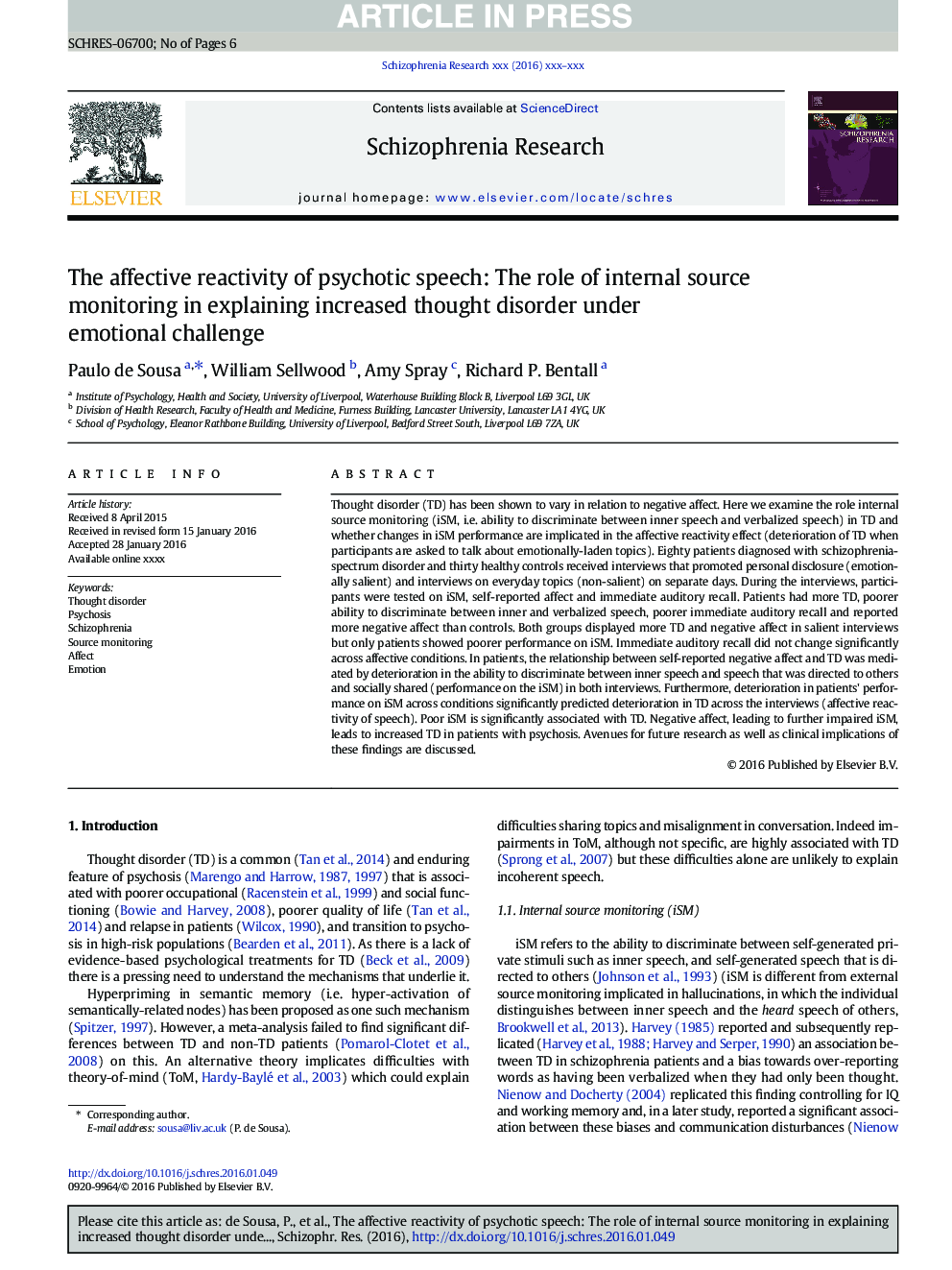| کد مقاله | کد نشریه | سال انتشار | مقاله انگلیسی | نسخه تمام متن |
|---|---|---|---|---|
| 6823159 | 548493 | 2016 | 6 صفحه PDF | دانلود رایگان |
عنوان انگلیسی مقاله ISI
The affective reactivity of psychotic speech: The role of internal source monitoring in explaining increased thought disorder under emotional challenge
ترجمه فارسی عنوان
واکنش عاطفی سخنرانی روانگردان: نقش نظارت بر منبع داخلی در توضیح اختلال افزایش فکر تحت چالش عاطفی
دانلود مقاله + سفارش ترجمه
دانلود مقاله ISI انگلیسی
رایگان برای ایرانیان
کلمات کلیدی
اختلال فکر روانپریشی جنون جوانی، نظارت بر منبع، تاثیر می گذارد، هیجانی،
موضوعات مرتبط
علوم زیستی و بیوفناوری
علم عصب شناسی
علوم اعصاب رفتاری
چکیده انگلیسی
Thought disorder (TD) has been shown to vary in relation to negative affect. Here we examine the role internal source monitoring (iSM, i.e. ability to discriminate between inner speech and verbalized speech) in TD and whether changes in iSM performance are implicated in the affective reactivity effect (deterioration of TD when participants are asked to talk about emotionally-laden topics). Eighty patients diagnosed with schizophrenia-spectrum disorder and thirty healthy controls received interviews that promoted personal disclosure (emotionally salient) and interviews on everyday topics (non-salient) on separate days. During the interviews, participants were tested on iSM, self-reported affect and immediate auditory recall. Patients had more TD, poorer ability to discriminate between inner and verbalized speech, poorer immediate auditory recall and reported more negative affect than controls. Both groups displayed more TD and negative affect in salient interviews but only patients showed poorer performance on iSM. Immediate auditory recall did not change significantly across affective conditions. In patients, the relationship between self-reported negative affect and TD was mediated by deterioration in the ability to discriminate between inner speech and speech that was directed to others and socially shared (performance on the iSM) in both interviews. Furthermore, deterioration in patients' performance on iSM across conditions significantly predicted deterioration in TD across the interviews (affective reactivity of speech). Poor iSM is significantly associated with TD. Negative affect, leading to further impaired iSM, leads to increased TD in patients with psychosis. Avenues for future research as well as clinical implications of these findings are discussed.
ناشر
Database: Elsevier - ScienceDirect (ساینس دایرکت)
Journal: Schizophrenia Research - Volume 172, Issues 1â3, April 2016, Pages 189-194
Journal: Schizophrenia Research - Volume 172, Issues 1â3, April 2016, Pages 189-194
نویسندگان
Paulo de Sousa, William Sellwood, Amy Spray, Richard P. Bentall,
